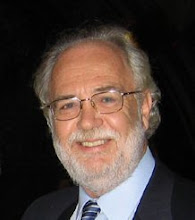I recently came across a reference in an article on social networking to Dunbar’s Number. It’s an intriguing idea. Dunbar’s Number is a concept developed by Professor Robin Dunbar, Head of the ICEA (Institute of Cognitive and Evolutionary Anthropology), University of Oxford. Essentially, the “number” is the suggested limit to the number of people with whom one can maintain stable social relationships, namely 150. Why 150? Apparently, it’s due to the cognitive limit on the number of friends with whom we can maintain such relationships. In other words, our brains are simply not big enough to handle many more than 150 stable social relationships. And this number goes back a very long time – for example to the average population size of villages in early hunter-gatherer times. See the Wikipedia article, Dunbar’s Number.
Professor Dunbar explains the concept in this YouTube video, How many friends does one person need? He refers to the current trend for people to compete in building up huge collections of friends on their Facebook account. This is a trend that I have noticed too, with many of my personal contacts numbering well over 1000 so-called friends. But, of course, they don’t “know” them. As Professor Dunbar puts it, if you have such a huge circle of friends they are mostly "just voyeurs into your life”, many of whom you could, with advantage, do without. In order to maintain a relationship it has to be reciprocated and nurtured - which is much easier to do face-to-face - but I must admit I have found social networks invaluable in maintaining contact with family and friends who are scattered all over the world – some of whom I had lost touch with until the advent of the Web.
Professor Dunbar’s views echo my own. When I joined Facebook and Twitter I had my own figure of 200-250 friends in mind, and so far I have not exceeded 250 on either of these networks. But I have Twitter friends who follow 3000-4000 people and who are followed by similar numbers. How do they cope? I simply do not have the time to deal with such huge numbers – and I am retired. My Facebook account has a core of around 40-50 friends with whom I am in regular contact, and I belong to a small number of special interest groups dealing with topics in which I have a professional or personal interest. Most of my core group on Facebook are family and close friends. The rest of my Facebook friends are mostly people I have met face-to-face or online and whom I find interesting or amusing. My Twitter friends are mostly people with whom I share a professional interest. I admit to being choosey. I turn down lots of friend requests, both on Facebook and on Twitter.
I have touched on this topic before in a blog posting headed Have PLNs been over-hyped? A reaction to Gavin Dudeney's blog,19 March 2011. I wrote:
“I get more out of chatting to half a dozen friends at my local pub on a Saturday night than I do out of a whole week of browsing the Web. Twitter is OK for picking up links and for occasional bits of information, but on the whole I find it confusing. Turn your head for a couple of hours and the interesting threads you were following have got lost in a mass of idle chit-chat. I deliberately avoid accepting lots of new friends on Twitter or Facebook. I can’t handle large numbers of friends or followers, and I don’t want to anyway. Facebook is my fun area. It embraces my family and real friends, and a few people I have met at conferences. Don’t expect too much serious stuff from me on Facebook. Most of my postings have nothing to do with my professional life.”
What do you think?
Wednesday, 25 April 2012
Subscribe to:
Comments (Atom)




